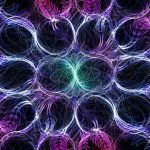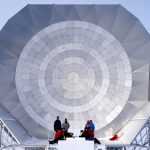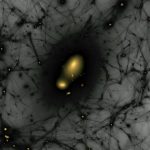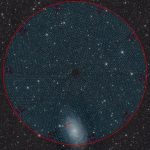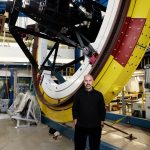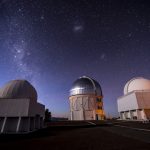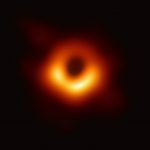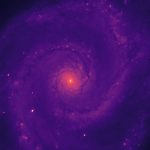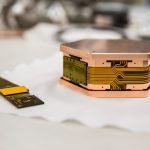Join the CPC’s own theoretical physicist Dan Hooper as he joins with NYU PhD student Shalma Wegsman to answer some of the deepest questions about dark matter, black holes, quantum mechanics, and more. “Why this Universe?” is a new podcast that seeks to break down some of the biggest ideas in physics into easily digestible… More »
Highlights
In an article submitted to Physical Review D, CPC members Noah Kurinsky and Gordan Krnjaic collaborate with Dan Baxter (KICP) and Yoni Kahn (UIUC) to present a novel interpretation of excess events observed at various low-threshold dark matter searches. They found that the anomalous results across various detectors operating in dramatically different experimental conditions could… More »
The SPT-3G experiment began its 2020 winter observing season on March 23, 2020. The SPT-3G camera on the South Pole Telescope (SPT) is undertaking a 1500 square degree survey of the cosmic microwave background, the light left over from the Big Bang. SPT is located at the geographic South Pole, and takes some of its… More »
Over the past five years, the Dark Energy Survey, a DOE-funded project led by Fermilab, has revolutionized our view of small satellite galaxies. DES discovered a large number of tiny galaxies close to the Milky Way’s largest satellites, the Magellanic Clouds, suggesting that multiple galaxies may have been captured by the Milky Way at the… More »
The Dark Energy Spectroscopic Instrument seeks to further our cosmic understanding by creating the largest 3-D map of galaxies to date. Below is a press release issued by Lawrence Berkeley National Laboratory announcing first light for this extraordinary instrument. The U.S. Department of Energy’s Fermi National Accelerator Laboratory is a key player in the construction of… More »
The Department of Energy has awarded Fermilab and University of Chicago scientist Josh Frieman $1 million over three years as part of the inaugural Office of Science Distinguished Scientist Fellowship program. Office of Science distinguished scientist fellows were chosen from nominations submitted by nine U.S. national laboratories. Frieman is one of only five scientists selected,… More »
Why is our universe accelerating in its expansion? If Einstein’s theory of general relativity is correct, then the dark energy that drives this expansion accounts for nearly 70% of the total energy in the universe. However, precise measurements of the history of this expansion may reveal that new dynamic forces are in play. The Dark… More »
These research organizations — the University of Chicago and the U.S. Department of Energy’s Fermi National Accelerator Laboratory and Argonne National Laboratory — worked together to build a new, ultra-sensitive camera for the telescope, called SPT-3G, which contains 16,000 superconducting detectors. Exploiting the technical capability and expertise of its Silicon Detector Facility, Fermilab led the… More »
The Dark Energy Spectroscopic Instrument seeks to further our cosmic understanding by creating the largest 3-D map of galaxies to date. Below is a press release issued by Lawrence Berkeley National Laboratory announcing first light for the optical lenses of this extraordinary instrument. The U.S. Department of Energy’s Fermi National Accelerator Laboratory is a key player in… More »
Fermilab is providing technology and expertise for the SuperCDMS SNOLAB project, which will expand the hunt for dark matter to particles with properties not visible to any other experiment. The U.S. Department of Energy Office of Science and the National Science Foundation have approved funding and start of construction for the SuperCDMS SNOLAB experiment, which… More »











